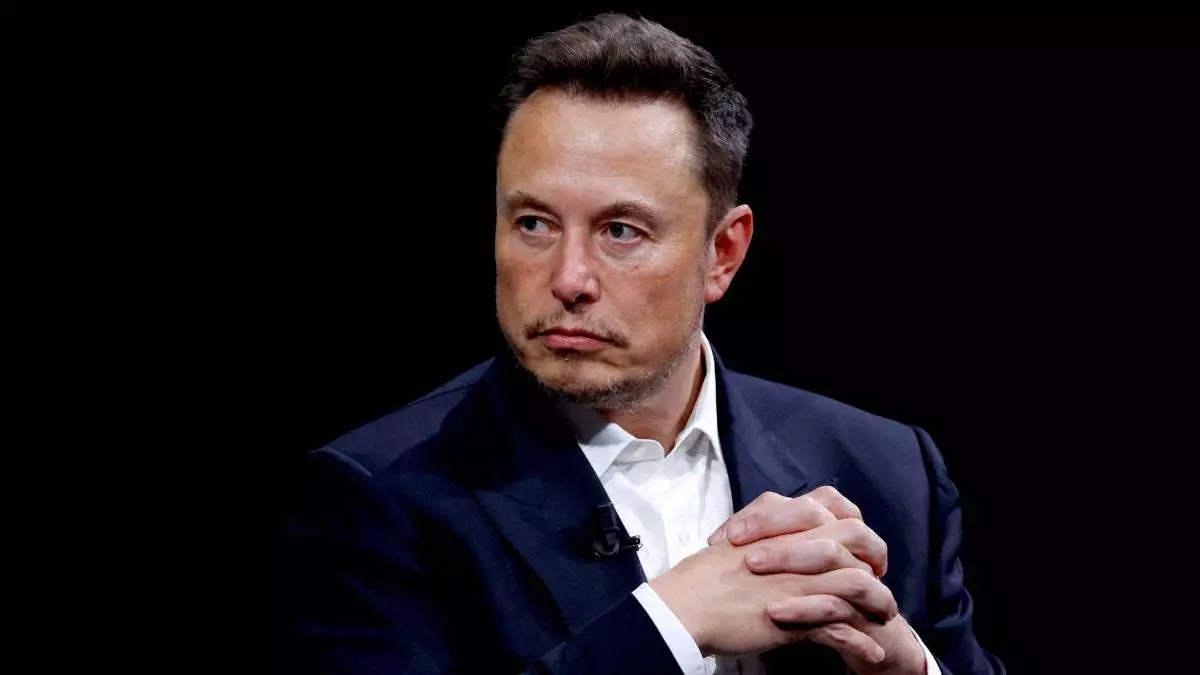The ongoing conflict between Elon Musk and the U.S. Securities and Exchange Commission (SEC) epitomizes a challenging intersection of powerful personalities and regulatory oversight. The SEC’s recent announcement that it intends to pursue sanctions against Musk is the latest episode in a saga that raises questions about accountability, interpretation of the law, and the balancing act between innovation and regulation in the tech sector.
At the heart of this situation lies Musk’s highly publicized $44 billion acquisition of Twitter. This deal has not only attracted the SEC’s scrutiny due to its size and implications for shareholders but has also posed broader questions regarding compliance with securities laws. Musk’s failure to appear for a court-ordered testimony on September 10 has drawn the ire of the SEC, prompting them to label his excuses as mere “gamesmanship.” The timing was peculiar, particularly as Musk opted to oversee a SpaceX launch instead—an action that some argue should have been anticipated considering the planning discussions that occurred two days prior.
The SEC argues that Musk’s actions constitute a blatant disregard for a court order and an ultimatum to the authority of the commission itself. For regulatory bodies, such incidents could set a dangerous precedent if individuals in influential positions decide to sidestep legal obligations without facing consequences. This scenario is not just about Musk. It sends a message that accountability must be upheld, lest a culture of evasion permeate corporate America.
Legal frameworks surrounding securities are designed to foster transparency and protect investors. Musk’s delay in disclosing his significant stake in Twitter—at least ten days overdue—arises from a critical failure to adhere to these regulations. Analysts have raised concerns, particularly among shareholders, that Musk’s actions might reflect a lack of respect for the regulatory system intended to ensure fair market practices.
A lawyer representing Musk has characterized the prospective sanctions as “drastic” and unnecessary, arguing that Musk’s absence resulted from an “emergency” beyond his control. However, the SEC’s perspective emphasizes the principle that compliance with lawful directives is paramount, even amid unforeseen circumstances. This tension between Musk’s defense and the SEC’s assertions represents a classic legal battle that transcends the specifics of one individual’s situation and enters the broader realm of corporate ethics.
Musk’s legal struggles are emblematic of a larger narrative concerning the relationship between innovative entrepreneurs and regulatory bodies. The SEC’s investigation into Musk’s acquisition behavior could have ripple effects, influencing how future tech entrepreneurs navigate their disclosures and corporate governance. When a figure as polarizing as Musk faces scrutiny, it resonates throughout the industry, creating an environment of heightened vigilance among other executives navigating similar waters.
Shareholders and investors are particularly attentive to this situation, as financial markets thrive on stability and predictability. The ramifications could discourage investment in nascent ventures wary of potential regulatory backlash, thereby stifling innovation—an outcome that neither the SEC nor Musk himself would likely endorse.
As the SEC prepares to pursue its sanctions, Musk’s legal team has scheduled a new date for testimony—October 3. Yet, the SEC has expressed skepticism regarding Musk’s future compliance. The dynamics of this confrontation appear tumultuous, with Musk previously accusing the SEC of harassment and overreach. A potential resolution may hinge not only on the outcome of the upcoming testimony but also on broader conversations about the interactions between influential tech leaders and regulatory bodies.
In the end, this drama is more than just an isolated case; it embodies the constant balancing act that must occur as innovation collides with required oversight. Whether this can be achieved sustainably without stifling creativity remains to be seen. The ensuing court case could mark a pivotal moment in defining both Musk’s legacy and the limits of executive power in the ever-evolving tech landscape.


Leave a Reply